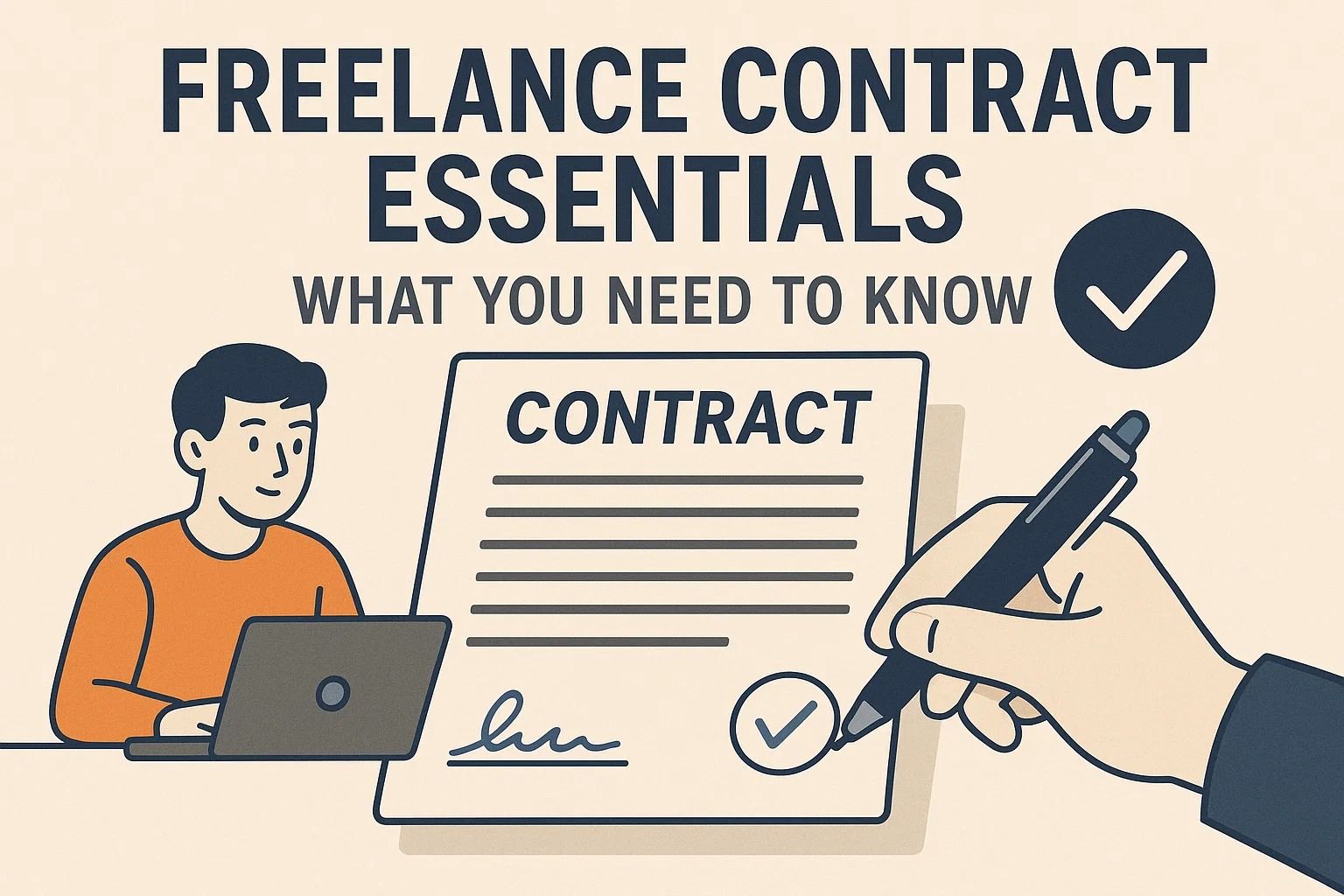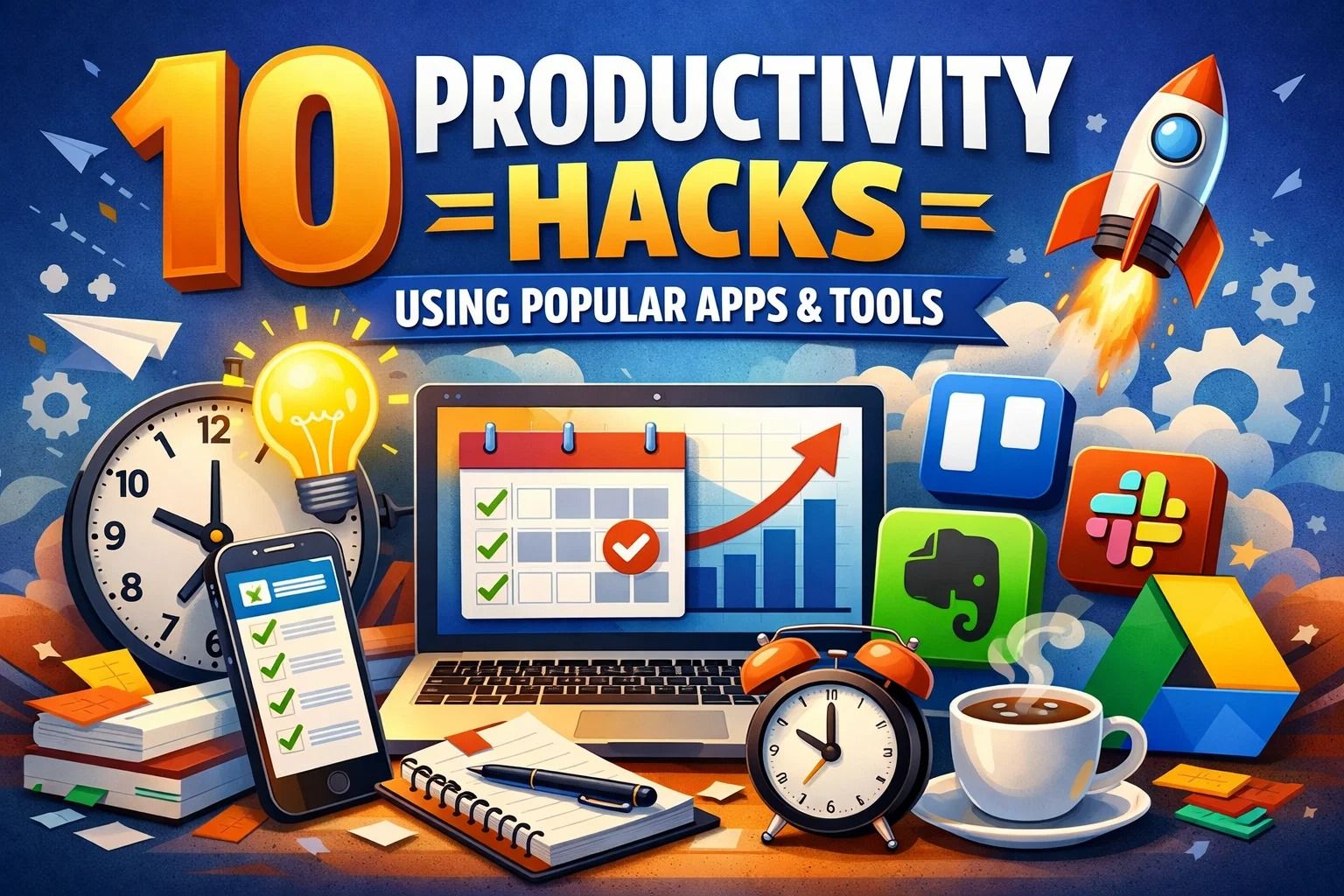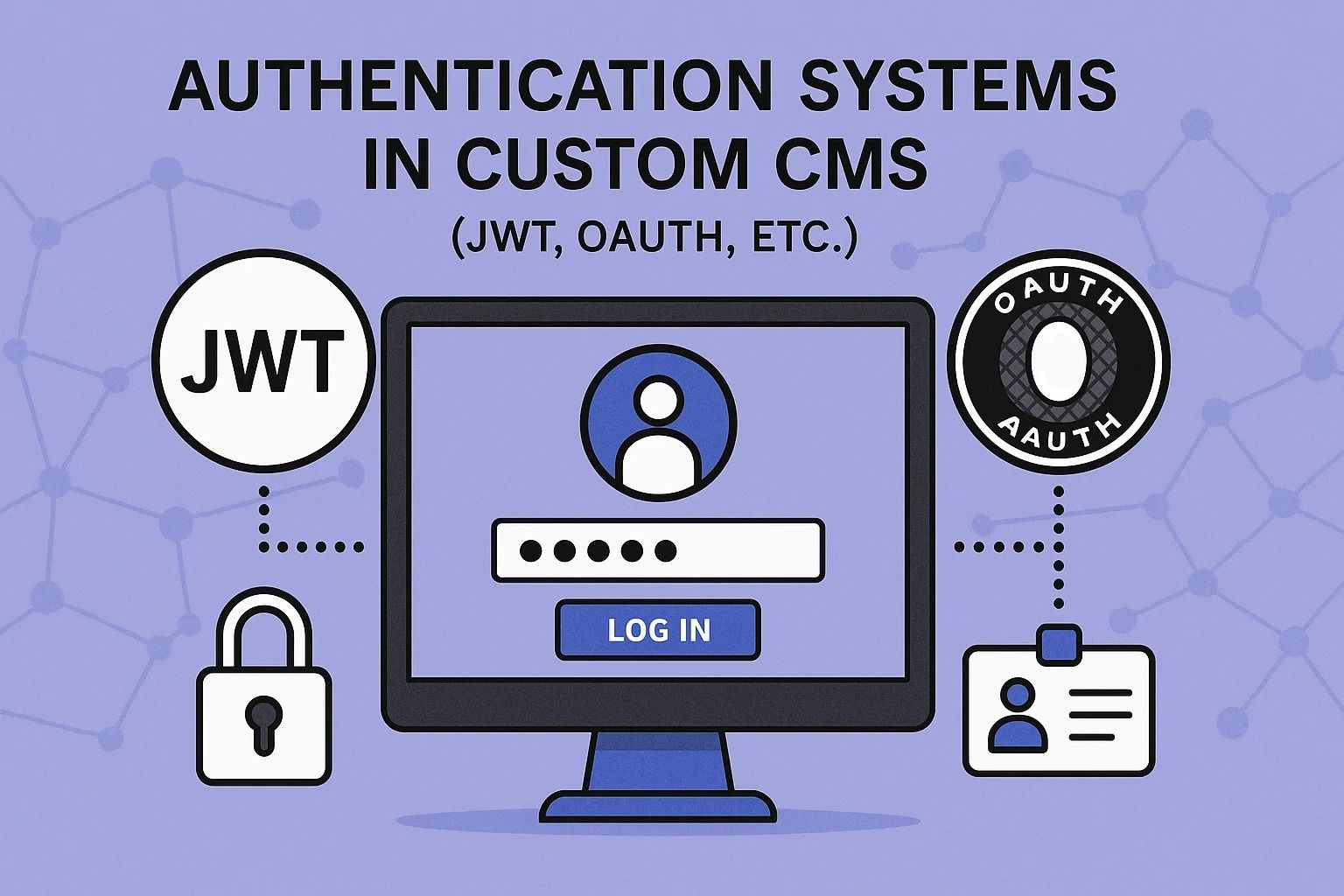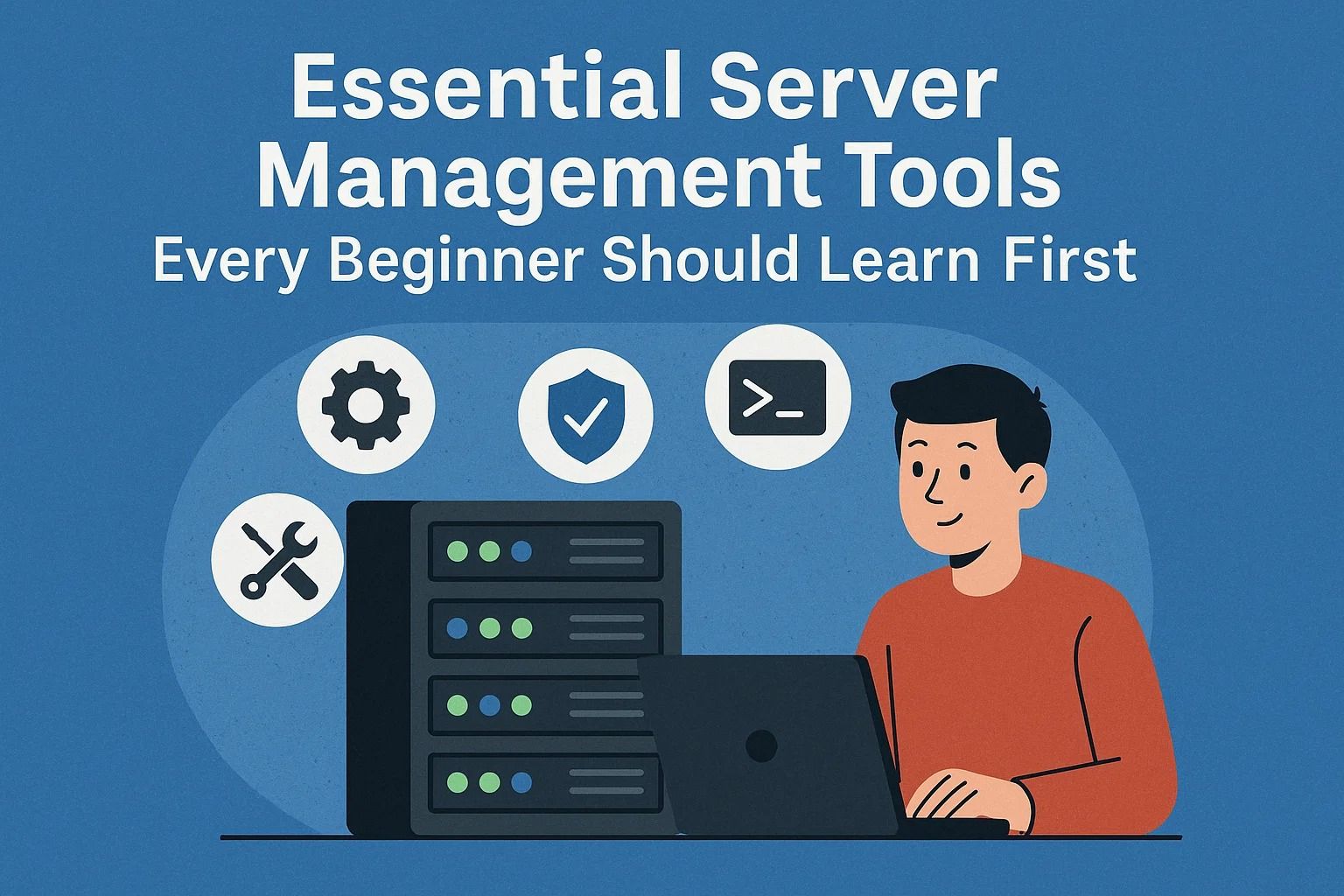
Freelance Contract Essentials: What You Need to Know
Why Freelance Contracts Matter
Freelancing gives you flexibility and independence — but it also comes with risks. Without a solid contract, you could face late payments, scope creep, or even disputes about intellectual property rights. A well-written freelance contract protects both you and your client, setting clear expectations from the start.
Key Functions of a Contract
- Clarifies scope: Outlines exactly what tasks you are responsible for.
- Protects payment: Ensures you get paid on time and in full.
- Defines ownership: Specifies who owns the work once it’s delivered.
- Reduces disputes: Provides a legal reference if conflicts arise.
Many beginner freelancers make the mistake of relying on verbal agreements or email threads. While these can be helpful, they don’t carry the same legal weight as a contract. In the event of a disagreement, you want a formal document that both parties have signed.
Common Risks Without a Contract
Let’s break down what can go wrong if you skip this step:
| Risk | Impact on Freelancer |
|---|---|
| Late or missed payments | Cash flow problems, wasted time chasing invoices. |
| Scope creep | Unpaid extra work that eats into your schedule. |
| Disputed ownership | Loss of rights to your work or unpaid licensing. |
| Client disputes | No legal document to back up your position. |
Without a signed contract, even friendly clients can unintentionally put you at risk. A simple template can prevent headaches later.
Essential Elements Every Contract Should Include
A freelance contract doesn’t have to be complicated or written in complex legal jargon. What matters is covering the essentials. Here are the most important sections:
- Scope of Work (SOW): Details the specific tasks, deliverables, and timeline.
- Payment Terms: How much you’ll be paid, when, and by what method.
- Ownership of Work: Who owns the final product — you or the client.
- Revisions and Edits: How many rounds of changes are included.
- Termination Clause: Conditions for ending the contract early.
- Confidentiality: Protects both your work and the client’s sensitive data.
For freelancers in the digital space — designers, developers, writers, and marketers — ownership and scope are especially important. If you don’t specify boundaries, clients may expect “unlimited revisions” or reuse your work without additional payment.
Real-World Example
Imagine you’re a freelance web developer. You agree verbally to build a client’s site for $1,500. Halfway through, they ask for additional features like e-commerce, custom dashboards, and SEO optimization. Suddenly, your $1,500 project becomes $3,000 worth of work. Without a contract, you’re stuck negotiating mid-project. With one, you simply point to the scope clause and add a paid amendment.
Pro Tip
Use plain language when writing contracts. The clearer your terms, the easier it is for clients to agree. Legal jargon often creates confusion rather than protection.
Further Learning
To build a sustainable freelance career, contracts are just one piece of the puzzle. You also need to master client management and workload balance. Check out our guide on balancing multiple freelance projects to protect both your time and mental health.
Key Clauses Every Freelance Contract Should Include
When creating a freelance contract, it’s not enough to simply outline the project scope and payment terms. To truly protect yourself and ensure professional client relationships, you should include several essential clauses. Each of these components will help prevent misunderstandings, disputes, and unpaid work, making your freelance business more sustainable in the long run.
1. Scope of Work
The scope of work clearly defines what you will deliver, how many revisions are included, and what falls outside the agreed project. Without this clause, clients may push for “scope creep,” requesting additional tasks without extra pay.
2. Payment Terms
Payment terms should specify the amount, payment method, and deadlines. Many freelancers ask for 50% upfront and the rest upon delivery. This clause should also address late payments, including penalties or interest charges.
3. Deadlines and Deliverables
Every contract should include delivery timelines. This not only holds you accountable but also prevents clients from demanding rushed work without notice. If the client delays providing necessary information, your deadline should automatically shift.
4. Revisions Policy
Freelancers often struggle with endless revision requests. Your contract should specify how many revisions are included and the cost of additional changes. For example, you might allow two revisions per project, with extra edits billed hourly.
5. Intellectual Property Rights
This clause clarifies who owns the work after completion. Many freelancers retain rights until full payment is made. Some industries also require specific licensing terms, especially in design, software, or written content.
6. Confidentiality
When working with startups or businesses handling sensitive information, a confidentiality clause (or NDA) is essential. It ensures you won’t disclose proprietary information to competitors or the public.
7. Termination Policy
Sometimes projects don’t work out. A termination clause defines how either party can exit the agreement. For example, you may require two weeks’ notice and compensation for work already completed.
Example of How This Plays Out
Imagine you’re a freelance web developer hired to build a landing page. Without a contract, the client might keep asking for “just one more feature” without paying extra. With a well-structured scope of work and revision clause, you can politely explain that additional requests require a new contract or added fees. This professional approach helps set boundaries while maintaining good client relationships.
Pro Tip: Always use written contracts, even for small projects. Verbal agreements are difficult to enforce, and written terms protect both you and your client.
Next, we’ll cover legal and practical tips for using freelance contracts, including tools you can use to draft and sign them digitally.
👉 Related reading: How to Market Yourself as a Freelancer on Social Media
Practical Tips and Tools for Managing Freelance Contracts
Having the right contract is only half the battle — the other half is managing it properly. Many freelancers struggle with sending, tracking, and signing agreements, but modern digital tools make this process fast and efficient. By leveraging contract management platforms and best practices, you can protect your work without drowning in paperwork.
1. Use Digital Signing Platforms
Instead of emailing PDFs back and forth, use platforms like HelloSign or DocuSign to get contracts signed legally and securely. These tools store signed copies, add timestamps, and provide legal validity in most countries.
2. Keep Templates Ready
Create a master contract template that you can customize for each client. This saves time and ensures you never forget important clauses like intellectual property rights or payment deadlines.
3. Use Clear, Simple Language
A contract doesn’t have to be full of legal jargon. In fact, using plain language makes it easier for both you and your client to understand the terms. Clarity prevents disputes down the road.
4. Store Your Contracts Safely
Use cloud storage services such as Google Drive or Dropbox, with folders organized by client and year. This ensures quick access if disputes arise or when you need to reference past agreements.
5. Revisit and Update Regularly
As your freelance business grows, your contract should evolve too. For instance, if you start charging higher rates, offering new services, or targeting international clients, your agreements should reflect those changes.
Case Study: The Freelance Designer Who Got Paid
Consider a freelance graphic designer who worked without a written contract. The client refused to pay for additional revisions, claiming they were included. After switching to contracts that specified “two revisions included, extra billed hourly,” the designer not only avoided disputes but also increased income by charging fairly for additional work.
Remember: A contract isn’t about mistrust. It’s about setting clear expectations and protecting both parties. Clients respect professionals who handle agreements seriously.
Conclusion
Freelance contracts are more than just paperwork — they are the foundation of a professional, sustainable business. By including essential clauses, using digital tools, and keeping your agreements updated, you create stronger client relationships and safeguard your income. Whether you’re a writer, developer, designer, or consultant, contracts give you peace of mind and the freedom to focus on delivering quality work.
👉 You might also like: Freelance Contract Essentials: What You Need to Know

















